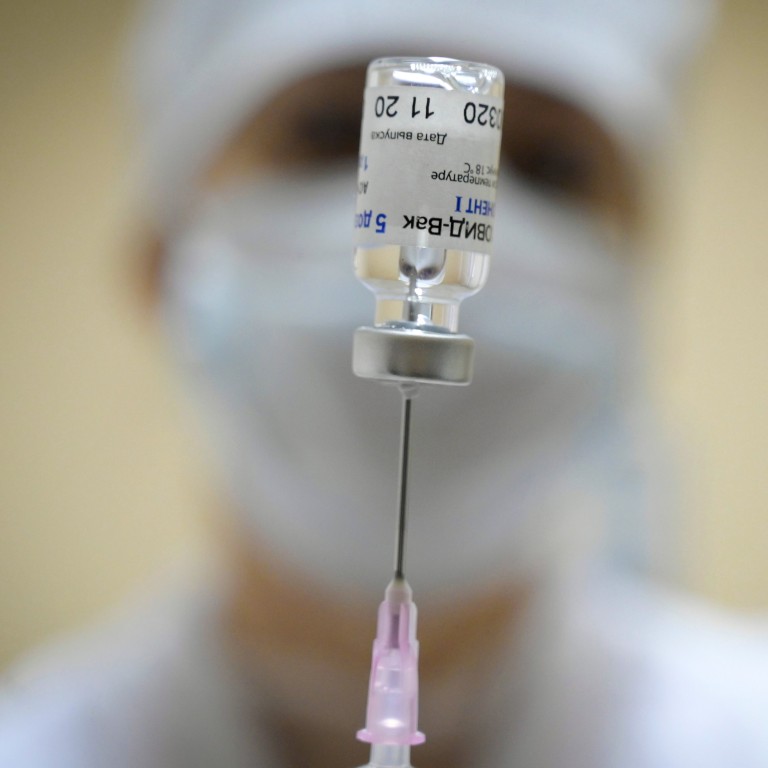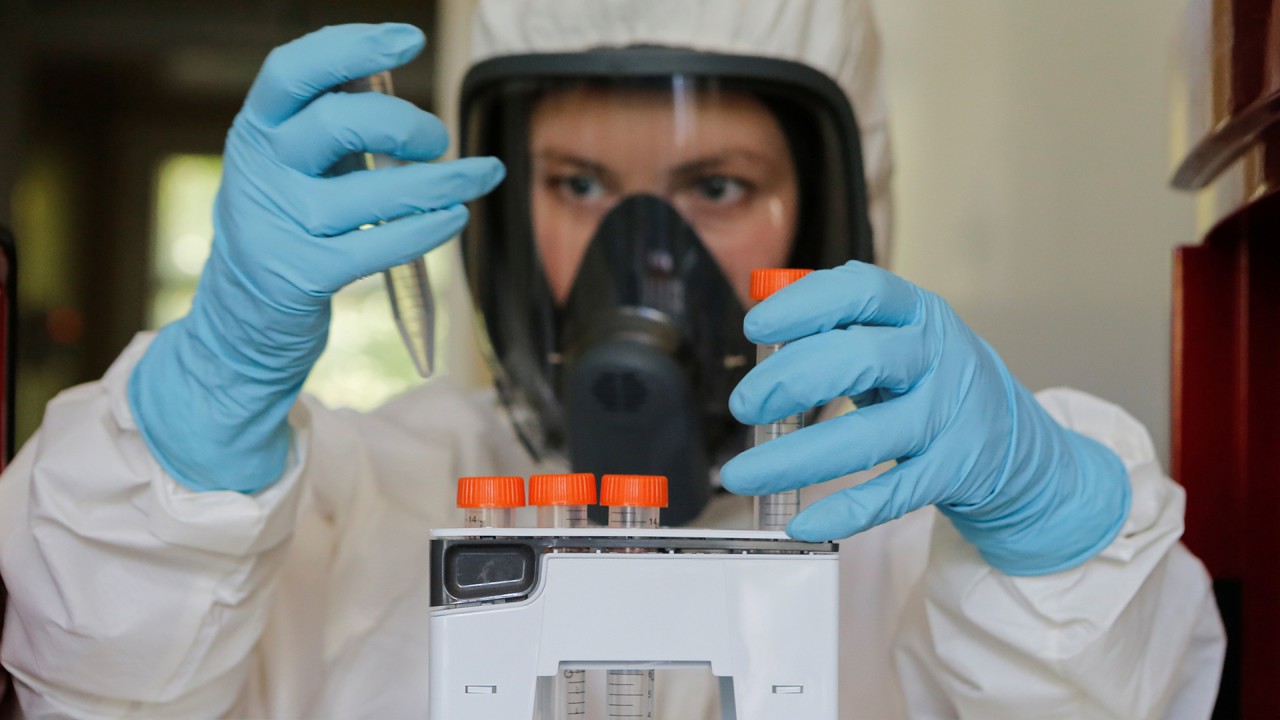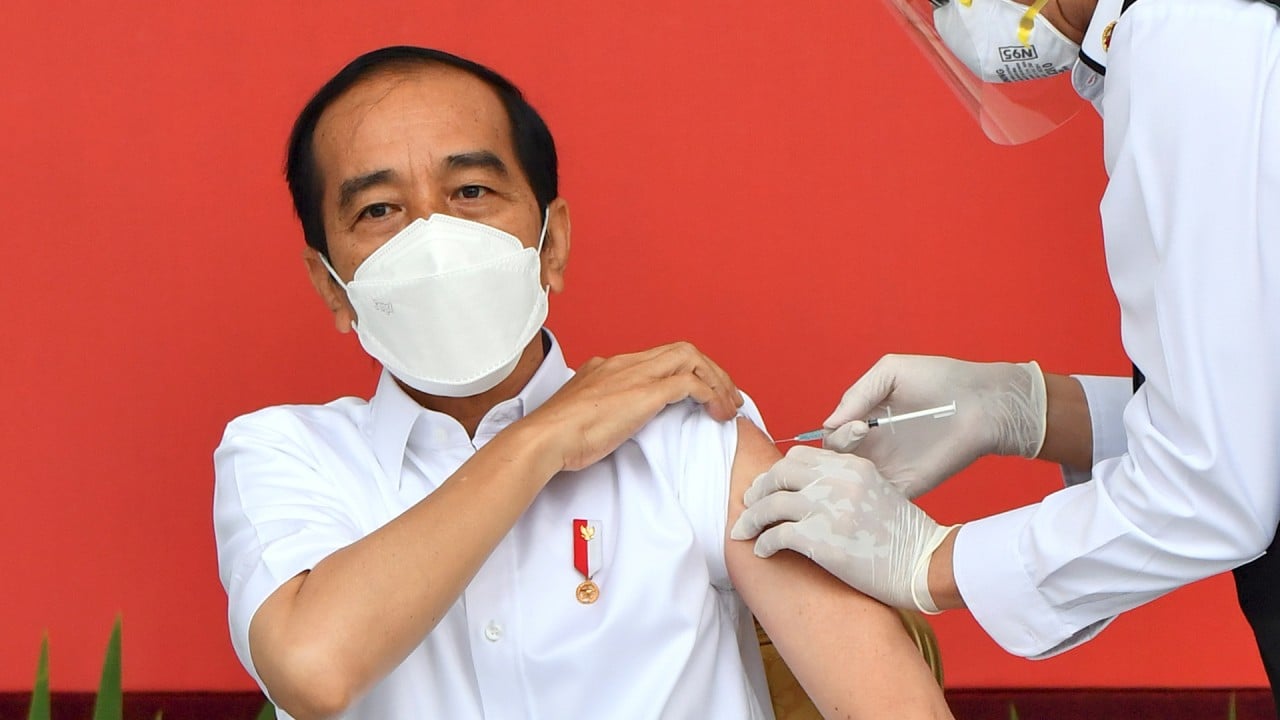
Coronavirus vaccine: Russia moves a step ahead of China with clinical trial data release
- Developer publishes results of phase 3 trials in peer-reviewed journal, bolstering credibility of shots, experts say
- Study shows ‘clear outcome and scientific principle of vaccination’
The assessment comes after The Lancet medical journal published results on Tuesday indicating that the Sputnik V vaccine had an efficacy rate of nearly 92 per cent against Covid-19.
The Lancet article was based on an interim analysis of a trial involving nearly 20,000 people in Russia.

02:03
Russia approves ‘world’s first’ Covid-19 vaccine, President Vladimir Putin says
In August, authorities in Russia made the surprise move of granting the vaccine candidate domestic approval before its phase 3 trials.
In a Lancet commentary, Professor Ian Jones from the University of Reading, and Professor Polly Roy from the London School of Hygiene & Tropical Medicine said the vaccine’s development was “criticised for unseemly haste, corner cutting, and an absence of transparency”.
“But the outcome reported here is clear and the scientific principle of vaccination is demonstrated, which means another vaccine can now join the fight to reduce the incidence of Covid-19,” they said.
Coronavirus: Russia’s Sputnik V vaccine 91.6 per cent effective, British study says
The publication also puts the Russian vaccine developer a step ahead of Chinese firms Sinopharm and Sinovac in sharing the data with the public.
Both Chinese companies have announced efficacy figures for their vaccines, which were granted approval for emergency use in China before the end of phase 3 trials last year. Sinopharm was given conditional market approval in China in December.
But neither have made their phase 3 data public or published results, although they have submitted data to the World Health Organization for review and received regulatory approval in other countries based on their trials.
Peer-reviewed publication was an important step towards trust in a vaccine, said immunologist Kylie Quinn, a vice-chancellor’s research fellow at RMIT University in Australia.
India rivals China in Covid-19 vaccine diplomacy with million doses for South Africa
“Transparency is an absolutely essential ingredient in getting a vaccine rolled out broadly within the population. If you are going to have a good vaccine it has to be safe, it has to be effective and you have to have trust,” Quinn said.
Both Moscow and Beijing have promoted their products as part of their diplomatic outreach, and a number of lower and middle income countries have already turned to their developers for doses via bilateral deals and local manufacturing agreements, as they wait for supplies from the WHO’s Covax Facility.
That programme, which aims to give poor and rich countries fair access to shots, is largely supplied by vaccines developed by Western pharmaceutical companies, though China said on Wednesday it would contribute 10 million doses to the scheme, pending WHO regulatory approval.
Covax is expected to have 2 billion doses for distribution this year, including 200 million, and an option to expand out to 900 million, shot from either US-based Novavax or British-Swedish firm AstraZeneca, which will be manufactured by the Serum Institute of India.

02:24
Joko Widodo gets first Sinovac vaccine shot as Indonesia starts mass Covid-19 inoculations
Health security specialist Nicholas Thomas, from City University of Hong Kong, said “vaccine nationalism” in the developed world could stymie Covax’s ability to deliver enough vaccine supplies to developing countries quickly.
“This creates a demand as well as a public health need that the Russia, India, or China could fill,” he said, adding that diplomatic allies were likely to get priority.
Reuters reported that Kirill Dmitriev, head of the Russian Direct Investment Fund, which markets Sputnik V abroad, said on Tuesday that 15 countries had already approved the vaccine for use. The group would also submit an application for approval in the European Union, he added.
Among the countries with deals for doses are Argentina, Bolivia, Serbia, and Brazil.
Danil Bochkov, a Moscow-based expert at the government-backed Russian International Affairs Council, said Russia could not meet global demand for the vaccine on its own, and was keen to ramp up production via facilities in Brazil, India, China and South Korea.
Coronavirus vaccine: syringe and vial makers also face a race against time to meet demand
India’s Hetero Biopharma is set to manufacture 100 million doses and South Korea’s GL Rapha will make more than 150 million doses.
China is taking a similar approach, teaming up with manufacturing partners including in the United Arab Emirates, Indonesia and Brazil, in addition to domestic production.
Bochkov said the Lancet’s peer review was not likely to reset the rules of “vaccine diplomacy” but it might change some minds in government amid delays to supplies from other producers.
“This could become a justifying factor for some Western states to follow Hungary’s footsteps and opt for the Russian product after months of criticising it,” he said citing reports last week that Budapest signed a deal for 2 million Sputnik V doses.

